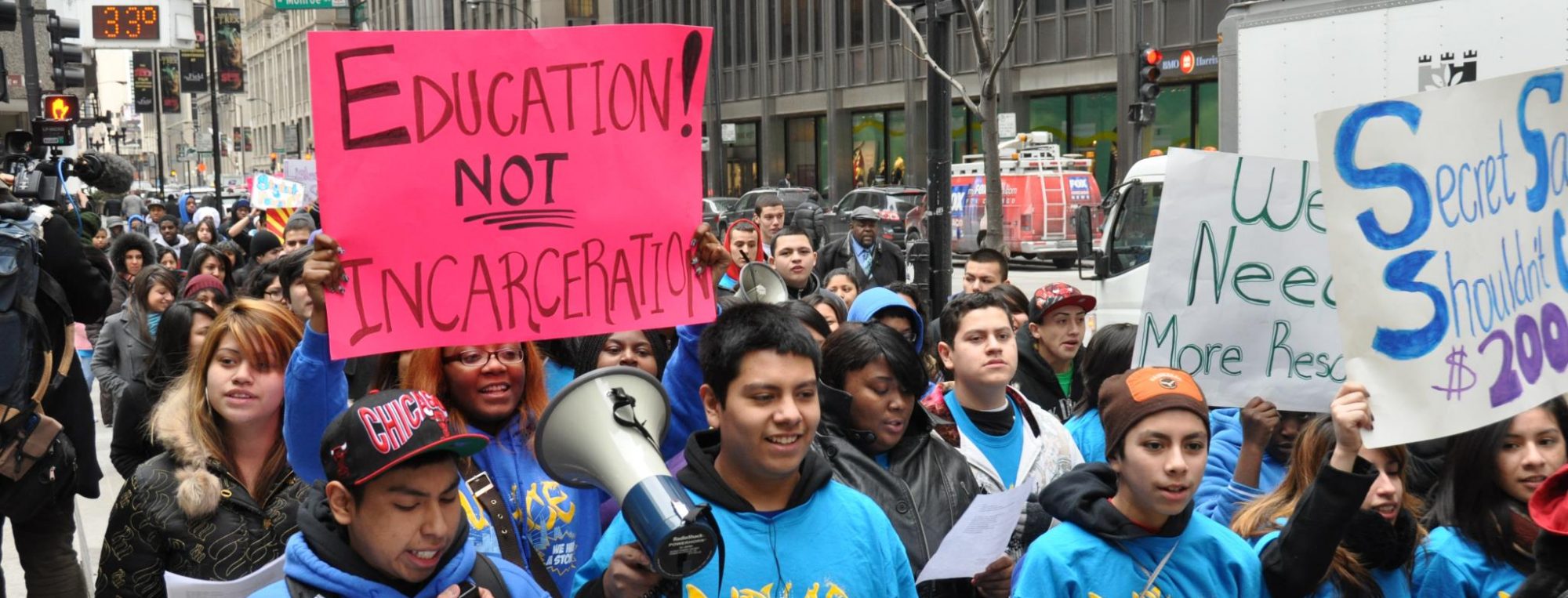The school-to-prison pipeline is not a new phenomenon. According to David Stovall, a leading race and education scholar, the link between harsh disciplinary practices in schools and the burgeoning young prison population should be deemed the “school and prison nexus” due the inextricable quality of this connection (Stovall, 2019). By having police officers regularly intervene as disciplinarians in schools, students are more likely to be subject to hard penalties including suspension or even arrest, as opposed to restorative justice practices that provide an opportunity for students to learn from their mistakes and continue to contribute to the school community (Anderson, 2014). According to education scholar Bettina L. Love, the use of school resource officers as disciplinarians contributes to what she coins the “spirit-murdering” of black and brown students (Love, 2019, p. 34). Through this framework, the mere presence of school resource officers, as well as their racist and ableist infliction of discipline, “robs dark people [and disabled folx] of their humanity and dignity and leaves personal, psychological, and spiritual injuries” (Love, 2019, p. 38). The effects of having police officers in schools clearly have detrimental impacts on students’ ability to learn, and, in turn, highlight the important role that the organizing work of so many youth organizations, including VOYCE, have in dismantling this school and prison nexus.
VOYCE is doing important work when it comes to dismantling this system of oppression. By educating themselves, promoting their autonomy, and coming together to stand up for what they believe in, the youth involved in VOYCE are adhering to Paulo Freire’s insistence that education be centered around “conscientization” (Hooks, 1994, p. 14). Rather than accept the world as is, VOYCE is using an engaged pedagogical framework to demand more from those in power (Hooks, 1994). In her article Fugitive Practices: Learning in a Settler Colony, Leigh Patel outlines how colonial systems of oppression remain in full force today, buttressed by schools’ measures of success and determination of misbehavior. According to Patel, “When achievement is upheld, rather than learning, it brings with it a toolkit of measurements, remediation programs, expulsions, and meritocratic explanations of who achieves and how” (2019, p. 256). This oppressive system of measuring success is compounded when police are stationed directly into schools, provided little remedial training, and given free reign over disciplinary measures. In attempting to dismantle this system of oppression, VOYCE employs methods of abolitionist teaching, engaged critical pedagogy, and conscientization.
In addition to the conceptual frameworks provided by Hooks, Friere, and Patel, scholars Sara McAlister and Keith C. Catone as well as Ben Kirshner outline a variety of organizing strategies that organizations can employ to bring them closer to achieving their goals. In his article Guided Participation in Three Activism Organizations: Facilitation, Apprenticeship, and Joint Work, Kirshner provides three conceptual lenses that can inform the ways groups are profiled and the agency of different actors is defined. VOYCE’s organizational framework is most closely related to that of facilitation or apprenticeship in which there is an emphasis on youth leadership above or equal to that of campaign success (Kirshner, 2008). In addition, youth are empowered to choose the causes they find most important based on their own lived experiences and adults serve a more neutral, supportive background role within the organization (Kirshner, 2008). These participation frameworks provide youth “the opportunity to exercise leadership, be creative, work together, and carry out goals they care about” (Kirshner, 2008, p. 80), empowering students to use their voice for positive social change. In addition, “by building broad networks of relationships and developing grassroots leadership, the communities that have been least well served by public institutions develop the power to engage meaningfully and equally with decision makers and hold them accountable” (McAlister and Catone, 2013, 27). Through its thorough peer-to-peer research, social media outreach, and leadership development model, VOYCE has employed a framework similar to the one developed by McAlister and Catone, and in doing so, has elevated its political influence, enabling the organization to achieve its substantial and meaningful educational reforms (Voices of Youth, n.d.).
